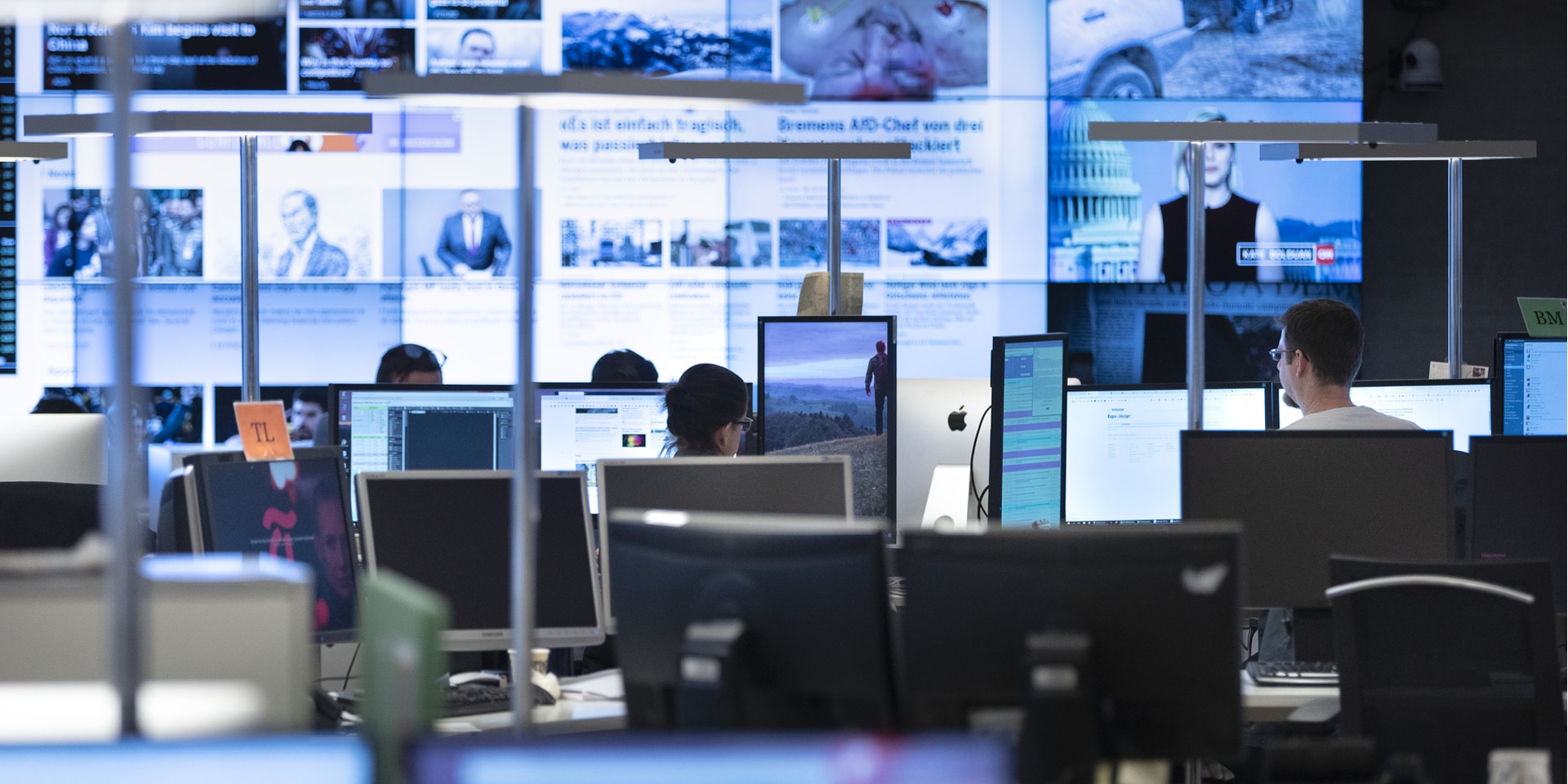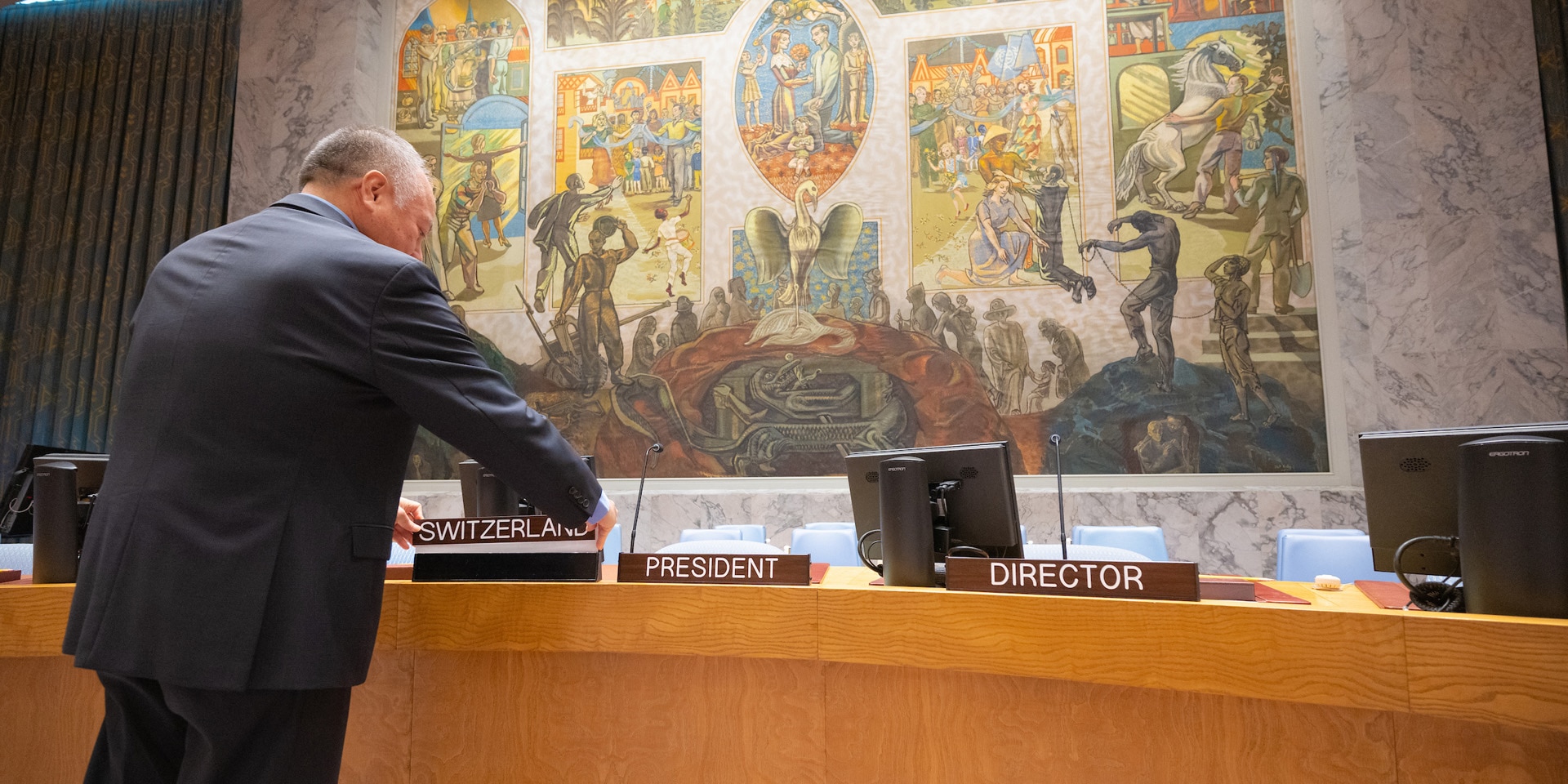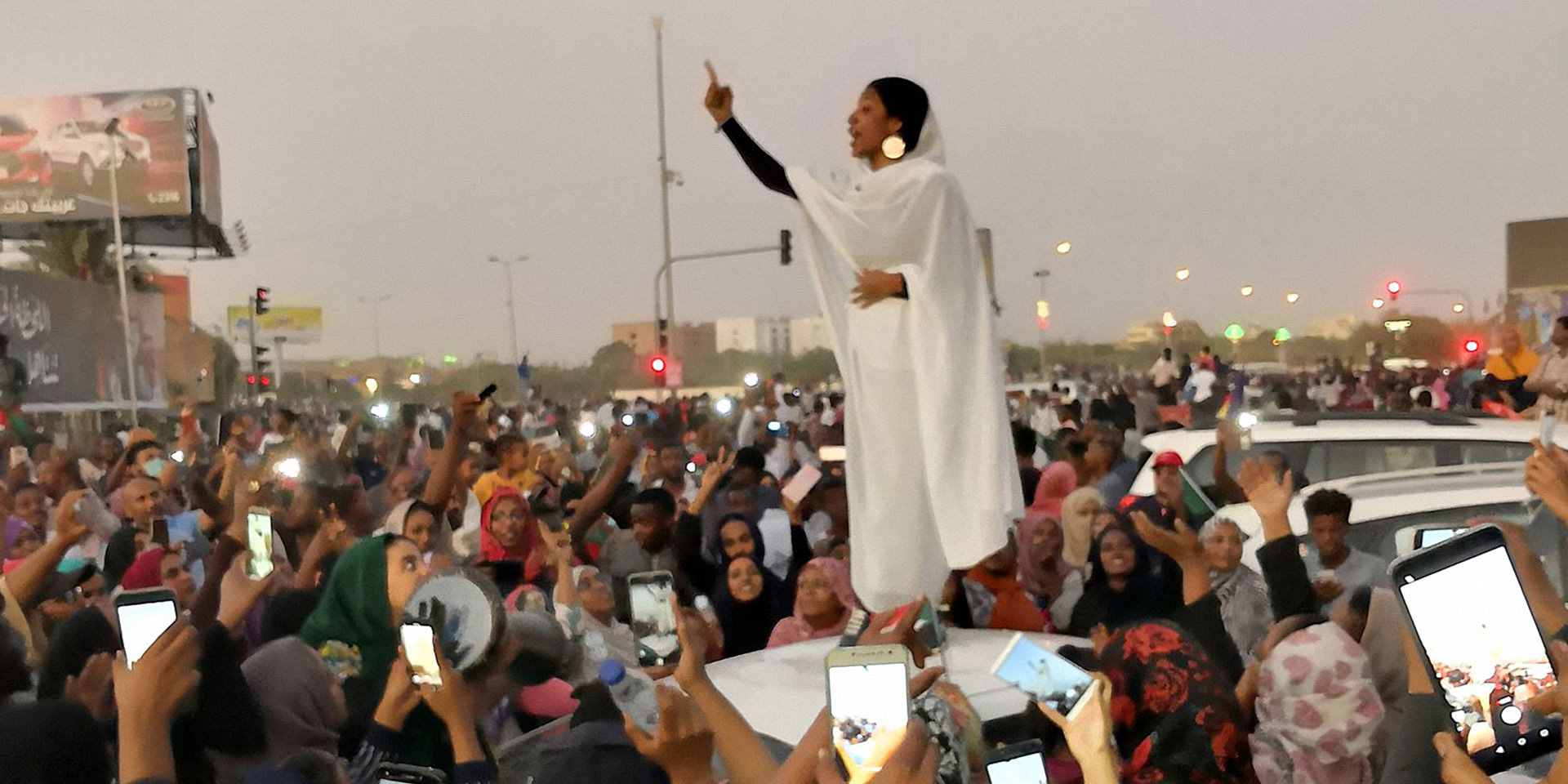Freedom of expression: the driving force behind all other human rights
2023 marks the 30th anniversary of World Press Freedom Day. Initiated by the United Nations General Assembly, the day revolves around freedom of expression as the driving force behind all other human rights. If access to information is essential in times of peace, it becomes vital in situations of conflict. Nicolas Bideau, Head of Communication of the FDFA, shares his thoughts on the subject.

Switzerland is involved at the international level as a member of the Media Freedom Coalition and the Freedom Online Coalition. © Keystone
It's barely eight o'clock in the morning: a woman from Ticino is already tweeting about the result of the latest FC Lugano match, a French-speaking man is sharing an article on Facebook about the recent cantonal elections in Geneva, and a young Swiss-German has just published an Instagram story commenting on Obama's visit to Zurich. Freedom of expression is a right that accompanies us in our daily lives. The World Press Freedom Day on 3 May, launched by the United Nations, precisely defines this freedom as the driving force behind all other human rights.
"It is essential to remember the central role of freedom of the press and media in the realisation of human rights, democracy, sustainable development and the safeguarding of peace", emphasises the Head of FDFA Communication, Nicolas Bideau. Indeed, if access to reliable information is important in times of peace, it becomes vital in conflict situations. And this is quite understandable.
The role of the media in conflict situations
How many wars have been fought on the basis of misinformation? How many conflicts are fueled by propaganda against individuals or against a nation? Access to independent and quality information is unfortunately increasingly under threat around the world. Media professionals are often subject to intimidation, online harassment or assault. Disinformation and the widespread dissemination of lies or fake news are increasing and partial or complete internet blackouts are becoming a regular occurrence. At this very moment, the management of information related to the military aggression against Ukraine, and the military confrontation in Sudan, confirm this worrying trend.
"Reliable information allows civilians in crisis zones to make the right decisions about their safety and that of their loved ones," says Nicolas Bideau. Disinformation, on the other hand, sows hatred and confusion and exacerbates violence. "It undermines the work of humanitarian organisations by jeopardising the safety of their staff in the field. In addition, it hinders access and support to the most vulnerable people," he continues. These are the reasons why the role of the media becomes central - Switzerland is committed to protecting them.
Multilateral commitment to press freedom
To provide quality information, media professionals must be able to do their work freely, without intimidation. They must be protected and respected, including in conflict zones. Their contribution to the dissemination of verified facts and reliable data is fundamental to combating fake news that tends to polarise society.
"States must make efforts to provide favourable framework conditions for professional media – so that they can base their analyses on independent and varied sources of information," says Nicolas Bideau. It is in this spirit that Switzerland has published its first National Action Plan for the safety of media professionals in Switzerland. The plan's areas of action include recognition of the role and profession of media professionals and better protection against online threats and hate speech – with women media workers being particularly affected.
For many years, Switzerland has been supporting the Organisation for Security and Cooperation in Europe in the area of press freedom and in particular its "Safety of Female Journalists online" project. Since last year, we have also been supporting the Council of Europe's Platform for Strengthening the Protection of Journalism and the Safety of Journalists. Finally, Switzerland is involved at the international level as a member of the Media Freedom Coalition and the Freedom Online Coalition, which are dedicated to the protection and promotion of media freedom and freedom of expression, offline and online.
Switzerland's actions in this area are set out in the FDFA's Foreign Policy Strategy 2020-2023 and Human Rights Guidelines 2021-2024.



